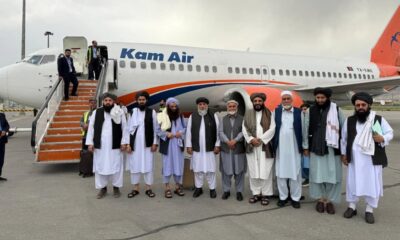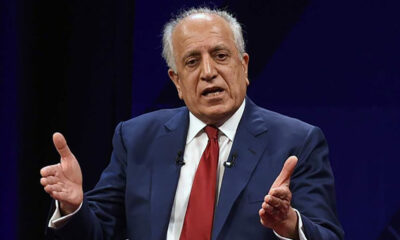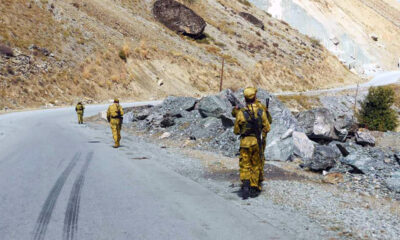Latest News
No ‘formal border’ between Afghanistan and Pakistan: Acting minister Noori

Acting Minister of Borders and Tribal Affairs Noorullah Noori while visiting the Torkham crossing said that Afghanistan does not have an “official border” with Pakistan.
The ministry released a video where Noori said that Kabul and Islamabad have a “hypothetical line” and the border between these two countries is still not clear.
“We have a hypothetical line with Pakistan, we don’t have an official border with Pakistan, and we don’t have a zero point, and there is only a hypothetical line between us,” said Noori.
He added that the tensions that sometimes arise along the hypothetical lines between Afghanistan and Pakistan, the Islamic Emirate is trying to resolve these tensions properly.
Earlier, all the common crossings between Afghanistan and Pakistan were blocked for cargo vehicles for eleven days, which caused huge losses to traders and investors.
Latest News
Acting Minister of Industry and Commerce heads to Pakistan
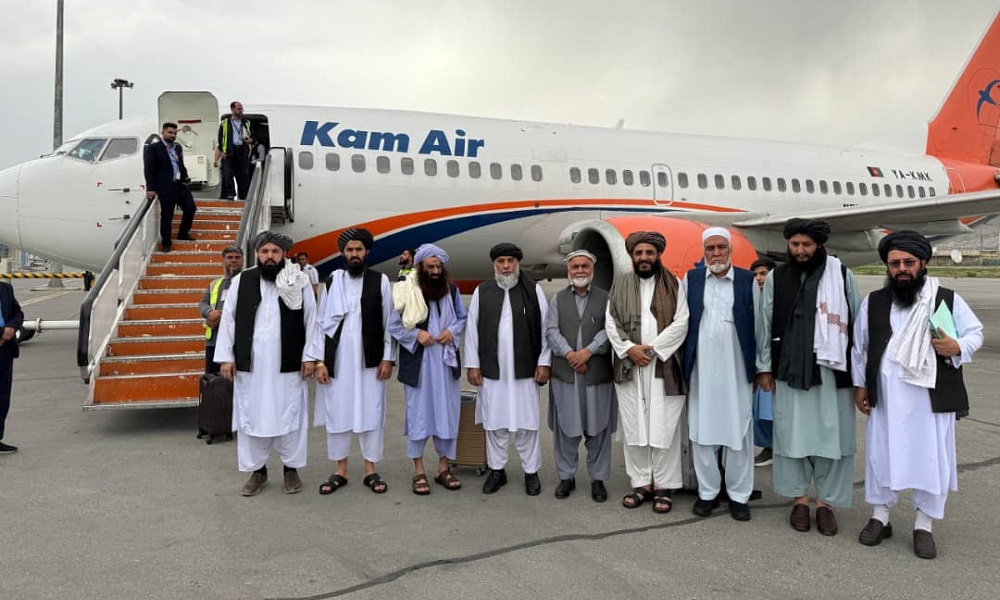
Nooruddin Azizi, the Acting Minister of Industry and Commerce of the Islamic Emirate of Afghanistan, and a high-ranking delegation, has left for Pakistan for talks on various issues.
According to a statement issued on Wednesday, the Ministry of Industry and Commerce stated that the purpose of this trip is to assess and resolve existing obstacles in trade, transit, and transportation between the two countries, as well as to hold discussions regarding the challenges faced by Afghan refugees residing in Pakistan.
The high-level delegation led by Azizi includes representatives from the office of the Economic Deputy Prime Minister, the Investment Facilitation Directorate of the Administrative Office, and the Ministries of Foreign Affairs, Finance, Refugees and Repatriation,
Latest News
Khalilzad says Pakistan might be using migrant expulsions to infiltrate ISIS into Afghanistan
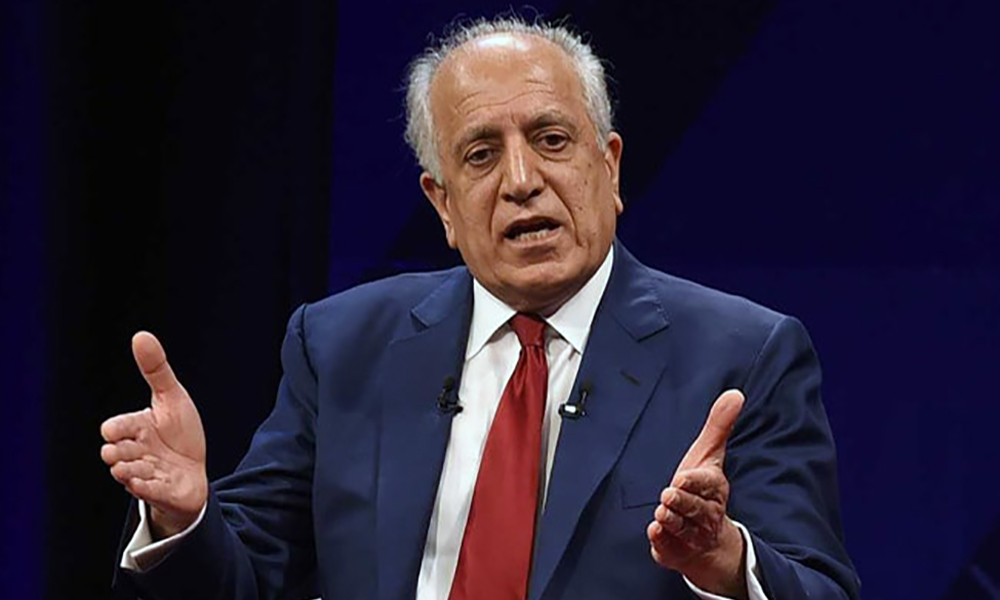
Washington’s former special envoy to Afghanistan, Zalmay Khalilzad, said in a social media post on Wednesday that he is concerned Pakistan might be using the expulsion of refugees as a cover to send in ISIS fighters into Afghanistan.
In a post on X on Wednesday, April 16, Khalilzad said: “Knowledgeable people tell me that they are concerned that the Pakistan establishment might well be using the expulsion of Afghan refugees as a cover to send ISIS terrorists to Afghanistan. I share this concern.”
Khalilzad did not elaborate further, nor did he clarify who the “knowledgeable people” were.
The Islamic Emirate has long been known to fight ISIS and has in the past accused Pakistan of supporting the militant group.
In January, Afghanistan’s deputy minister of foreign affairs said ISIS was operating training centers in Pakistan.
Khalilzad’s remarks come amid intensified efforts by Pakistan to deport hundreds of thousands of Afghan refugees in the country.
Pakistan began deporting undocumented Afghans in October 2023 but following a directive in December, authorities ramped up the deportations from April 1. In the first two weeks of this month over 45,000 Afghans returned.
Latest News
IEA warns UN in Afghanistan against undermining the ordinances of Islamic Sharia
The Islamic Emirate however said in Wednesday’s statement that Afghanistan implements court rulings in accordance with a thorough judicial process and meticulous legal scrutiny.

The Islamic Emirate of Afghanistan on Wednesday warned the UN in Afghanistan (UNAMA) against criticizing or undermining the ordinances of Islamic Shariah and said remarks by the organization last week on the execution of four men were “unacceptable”.
In a statement issued by the IEA’s Ministry of Foreign Affairs, the Islamic Emirate said the remarks were in “direct contravention of the organization’s mandate, and is categorically unacceptable.”
The ministry stated that as an Islamic government it was their duty to carry out such punishments under Sharia.
On Friday, UNAMA condemned the executions and called for the abolishment of the death penalty in Afghanistan.
In a post on X UNAMA stated: “The death penalty is inconsistent with the fundamental right to life. UNAMA calls for an immediate moratorium on the death penalty as a step towards its abolition.”
Four men were publicly executed in Afghanistan last week: two in Badghis, one in Nimroz, and one in Farah province.
Two of the men were shot around six or seven times by a male relative of the victims in front of spectators in Qala-e-Naw, the centre of Badghis province, witnesses told AFP. The families of the victims reportedly turned down the opportunity to offer the men amnesty.
The Islamic Emirate however said in Wednesday’s statement that Afghanistan implements court rulings in accordance with a thorough judicial process and meticulous legal scrutiny.
“During this process, the accused is granted full rights to defense from the beginning until a final verdict is issued,” the statement read.
The IEA said UNAMA’s remarks that Qisas punishments were “contrary to the right to life” and that the death penalty should be abolished “are considered irresponsible and based on ignorance of Islamic rulings.”
“The implementation of Shariah-prescribed punishments, including Qisas, is an undeniable component of Islamic law.
“In the sacred texts, Qisas is explicitly associated with the preservation of life, and human experience has also demonstrated its effectiveness in ensuring justice and social order.
“As an Islamic government, the Islamic Emirate of Afghanistan considers the implementation of Qisas its religious obligation,” the statement read.
As such, the IEA reminded UNAMA that “any attempt to critique or undermine the ordinances of Islamic Shariah constitutes an overreach, is in direct contravention of the organization’s mandate, and is categorically unacceptable.
“Moving forward, it is imperative that UNAMA refrain from engaging in such remarks,” the IEA warned.
Qisas, in Islamic legal terms, translates to “retaliation in kind,” “an eye for an eye,” or retributive justice.
It’s a principle of Islamic law that allows for punishment in kind or compensation.
-
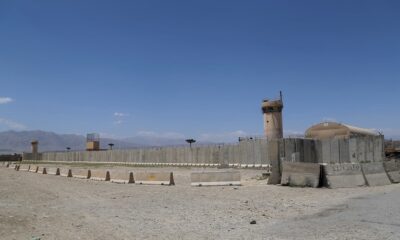
 Latest News4 days ago
Latest News4 days agoNo American military presence in Bagram: US defense official
-

 World4 days ago
World4 days agoWhite House says ‘all hell to pay’ should Iran develop nuclear weapon
-

 Latest News5 days ago
Latest News5 days agoTrump ends protected status for thousands of Afghans, Cameroonians
-

 Latest News4 days ago
Latest News4 days ago‘No one wants to see a nuclear-armed Iran,’ says former US ambassador to Afghanistan
-
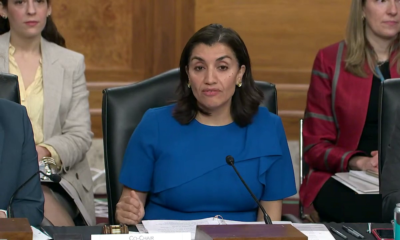
 Latest News4 days ago
Latest News4 days agoUS Senate convenes commission to review early years of Afghanistan war
-
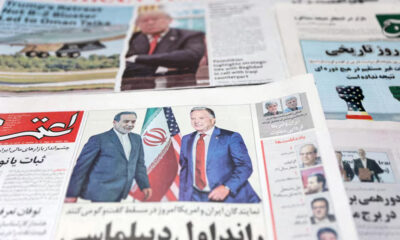
 Regional4 days ago
Regional4 days agoIran, US hold ‘positive’ talks in Oman, agree to resume next week
-
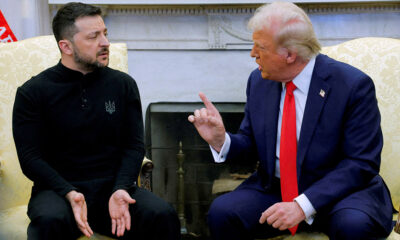
 World3 days ago
World3 days agoTrump says Ukraine talks may be going OK, but there is a time ‘to put up or shut up’
-

 Latest News3 days ago
Latest News3 days ago6.1-magnitude earthquake shakes northern Afghanistan




